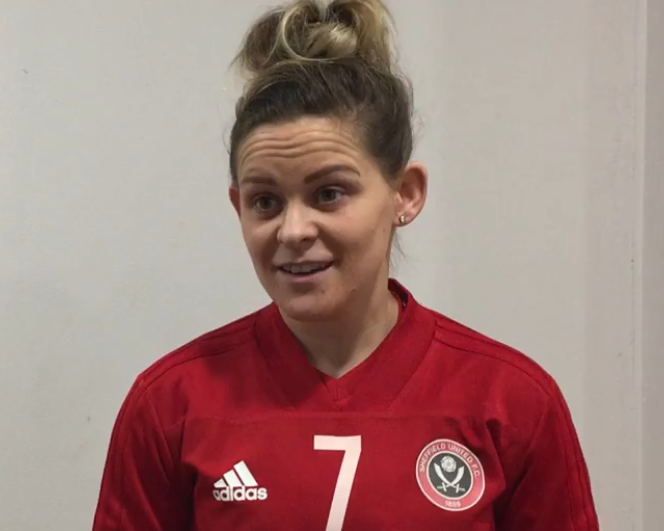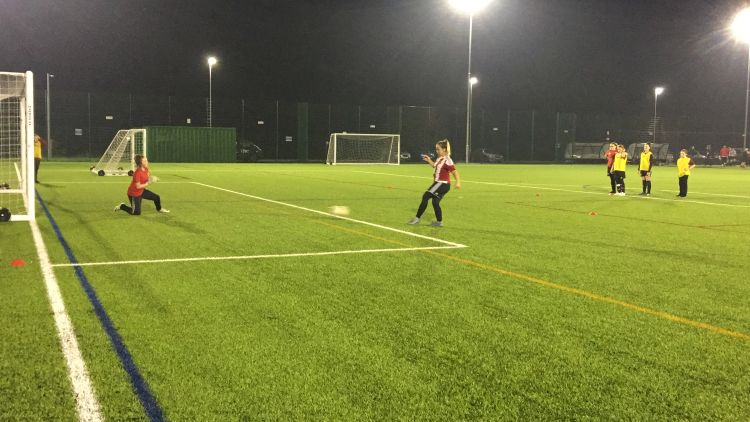Women's Football: A Growing Game
Where are we now?

It's 7:30am on a Friday and it is pouring with rain. A group of over 20 girls are doing a bleep test.
This is a regular occurrence for Sheffield University’s Women’s Football team.
With fitness sessions every Friday and training and games on Monday’s and Wednesday’s, it’s not difficult to see how dedicated these girls are.
Co-club captain, Grace Byrne, 21, said: "Fitness sessions are a great way for the whole club to train together and for individual teams, fitness can improve how they perform on match days.
"Also, fitness can be quite fun so it is another social way of seeing people in the club and keeping people's mental health good through exercise."
She added that football is a great way to make new friends and relieve the stress of university.
With the World cup next year, women's football has never been more popular.
In 2015, more than 4 million people watched the lionesses in their World Cup semi-final.
According to a UEFA review of the 2016/17 season, 6 countries in Europe now have over 100,000 professional players.
An FA study also highlighted that there are around 2.95 million female players and 38, 093 qualified female coaches in England alone.
Sheffield United Woman’s team are currently 9th in the Championship. They train three times a week and many of them work alongside their football. The captain, Ellie Gilliat, 30, is currently studying towards her degree at Sheffield Hallam University.
When talking about the game she said: “I think more could be done to promote girls football.
They are starting to do summer courses and going into schools, but it should be just as appealing as the lad’s football, the lad’s rugby.
They need to bring the women’s football and the women’s rugby up to that level to make it a little bit more widespread, so that girls know they’ve got an option of that maybe more so than just netball or hockey, which is what our two choices were when we were at school.”
A UEFA study stated, between 2012 and 2016, the number of professional and semi-professional female players has more than doubled, rising from 1,303 to 2,853.
Despite the challenges facing girls wanting to play professionally, Sophie Jones, 27, said: “I’ve always wanted to go professional.
“It’s quite funny really, when you have your year 6 leaver’s assembly in school and they ask you what you want to be and I’m the only girl who stands up and says professional football player.
“Everyone in the crowd laughs at you, but here I am now playing for Sheffield United.
“It’s quite nice to show everyone that you can do it if you set your mind to it.”
"Women's football is getting bigger and it will only continue to get bigger."
There are now 20 national football academies for girls, according to a UEFA study.
Clearly, women’s football is becoming more popular in younger age groups. When Ellie was younger, she said she had very little choice when looking for a girl’s football team.
Now there is more choice than ever, in Sheffield United Community under 14's league, there are seven other teams and another division.
These girls train once a week, although some of them play for other teams as well.
Leah Pallett, 13, said: “When I watch football, I think, I want to do that!”
She added that in primary school she used to play football with the boys, but did not really know that there were football teams for girls.
Lack of publicity is a real issue for women’s football. In a Facebook and Twitter survey 97.2% thought that women’s football should have more publicity.
55.6% of respondents thought that professional women’s football was of equal quality to men’s football.
Despite the progress made in women’s football, there is still a long way to go.
72.2% of people said that women’s football will never be as popular as men’s football. Many people said lack of media coverage and funding was the reason for this
Just under half of the girls who played football said they had faced some kind of sexism within the game.
Many of them said people assume they cannot play football because they are female.
Ada Hergerberg was the first woman to win the coveted Ballon d’Or this year.
A monumental occasion for Hergerberger as well as for women’s football as a whole.
Then DJ Martin Solveig asked her to twerk. A question not put to fellow Ballon d’Or winner, Luca Modrić.
Hergerberger was visibly uncomfortable as she refused his request.
Although Solveig apologised, clearly sexist attitudes still prevail at all levels of football.
Women’s football still has a long way to go in the fight for equality. However, with the recent pay rises for women in professional teams and the Women’s World Cup next year, it is heading in the right direction.





